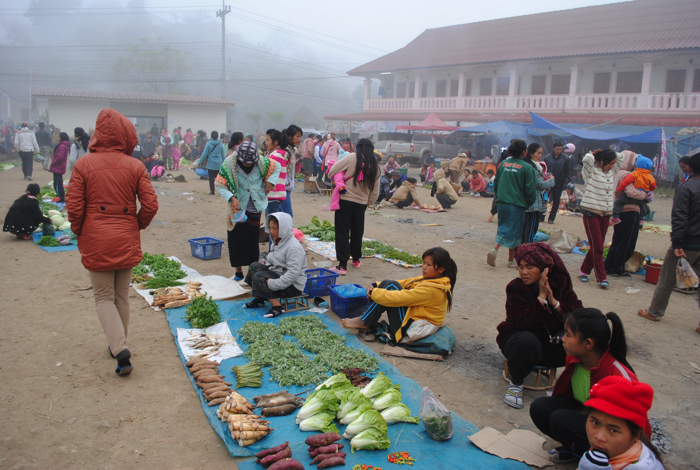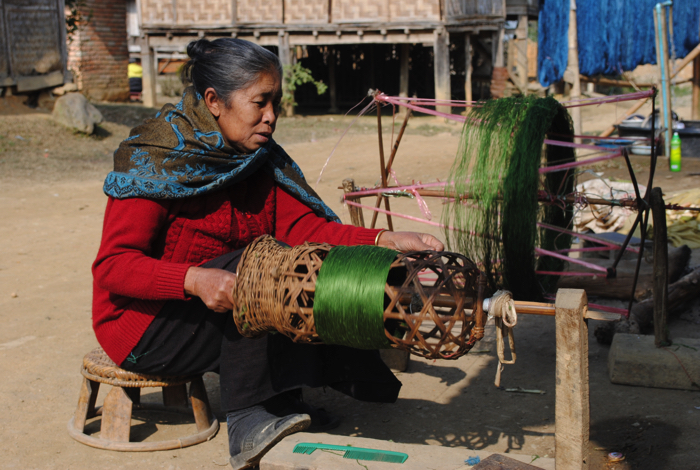- Project Leader : Ochiai Yukino (Ryukoku University, Department of Food Agriculture System, Faculty of Agriculture)
- Collaborators : Ikeda Kazuto (Osaka University, Studies in Language and Society, Graduate School of Language and Culture)
- : Imamura Masao (Kyoto University, Center for Southeast Asian Studies)
- : Kimura Makiko (Tsuda College, Department of International and Cultural Studies)
- : Kojima Takahiro (Kyoto University, Center for Southeast Asian Studies)
- : Nakata Tomoko (Kobe City University of Foreign Studies, Faculty of Foreign Languages, Department of International Relations)
- : Nathan Badenoch (Kyoto University, Center for Southeast Asian Studies)
- : Fujita Koichi (Kyoto University, Center for Southeast Asian Studies)
Outline of Research
In this joint research project, we focus on ethnic minorities living in so-called “Zomia” region that spread from Yunnan Province of China, mainland Southeast Asia to northeastern part of India and eastern Bangladesh. We intend to compare practices and exchanges by the ethnic minorities who are forced to live as citizens of nation with different political and economical systems. Based on this comparative analysis, we aim 1) to clarify the current status and issues of research activities in this target region, 2) to improve field survey methodology both from technical and ethical aspects, and 3) to prepare a large-scale research project in the near future. In order to deliver steady results, we invite Dr. Nicholas Farrelly from Austrian National University Collage of Asia and the Pacific as a visiting fellow for six months from July 2016.
Purpose
In this joint research project, eight research members plan to present findings on practices and exchanges of the ethnic minorities that were collected by their recent field works in the “Zomia” region. Further, we plan to request guest speakers to do a speech from various disciplines and standpoints. Finally, we aim 1) to clarify present status and issues of research activities in this target region, 2) to improve the field survey methodology, and 3) to prepare a large-scale research project in near future.
Significance
1. Cross-boundary research
We form a cross-boundary team to work on various case studies from Southeast Asia, South Asia and China. In addition, we invite Dr. Nicholas Farrelly as a visiting fellow for a six-month stay at CSEAS. Dr. Farrelly would be the most suitable scholar to deepen our analysis, because he has great research achievement on politics and societies in Thailand, northeastern India, Bangladesh, Myanmar and Southwestern China.
2. Aspects for everyday life and unexpected situation
We plan to analyze practices and exchanges of the ethnic minorities from two viewpoints: everyday life and unexpected situation. Regarding everyday life, we examine on such subjects as agricultural and business activities, handicraft making, religious acts and oral communication. On the other hand, in some cases, people have suffered from political conflicts, ethnic problems and unavoidable immigration. Therefore, we take up these unexpected matters as subject for discussion. Based on this comparative analysis, we intend to clarify present status and issues of research activities in the “Zomia” region.
Expected Results
1. Cross-boundary research
We form a cross-boundary team to work on various case studies from Southeast Asia, South Asia and China. In addition, we invite Dr. Nicholas Farrelly as a visiting fellow for a six-month stay at CSEAS. Dr. Farrelly would be the most suitable scholar to deepen our analysis, because he has great research achievement on politics and societies in Thailand, northeastern India, Bangladesh, Myanmar and Southwestern China.
2. Aspects for everyday life and unexpected situation
We plan to analyze practices and exchanges of the ethnic minorities from two viewpoints: everyday life and unexpected situation. Regarding everyday life, we examine on such subjects as agricultural and business activities, handicraft making, religious acts and oral communication. On the other hand, in some cases, people have suffered from political conflicts, ethnic problems and unavoidable immigration. Therefore, we take up these unexpected matters as subject for discussion. Based on this comparative analysis, we intend to clarify present status and issues of research activities in the “Zomia” region.
 Exchanging commodities and information in a morning market (Oudomxai, Laos 2014) |
 The change occurring in use of natural materials for textile making (Houaphan Province, Laos 2014) |
